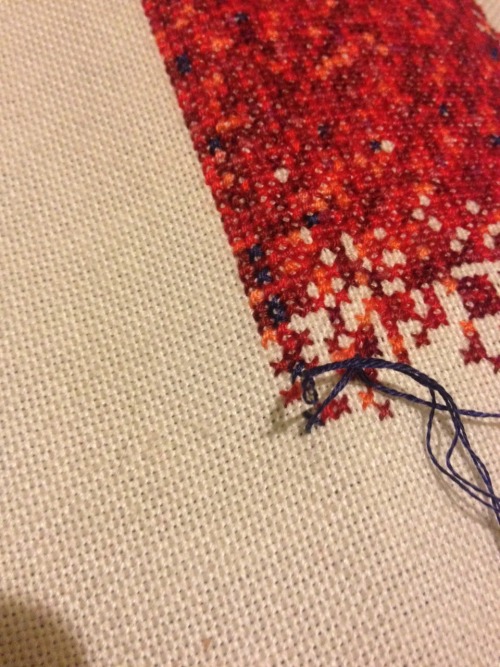This is the main tumblog of Silvie Kilgallon. I'm a conceptual artist and my work is largely influenced by my academic interests in classics, ancient history, translation, and philosophy of language. This blog details conceptual, casual and personal projects on which I am currently working. To see the Stitched Iliad project, please check out the Stitched Iliad blog below.
154 posts
Differences Achieved By Slipping Knitwise/purlwise For An SSK Decrease, For Anyone Who Has Ever Wondered.





Differences achieved by slipping knitwise/purlwise for an SSK decrease, for anyone who has ever wondered. Top left is traditional SSK - both stitches slipped knitwise. Top right is SSK with both stitches slipped purlwise. Bottom left is first stitch slipped purlwise and second slipped knitwise. Bottom right is first stitch slipped knitwise and second slipped purlwise. You can see that the traditional SSK gives the smoothest line. But that might not always be the best style for a pattern. If you're working something that emphasises corners and angles, try one of the other three. SSK with knitwise then purlwise completely hides the second stitch being decreased so it gives a simple step pattern in the decrease. The other two allow a leg of the second stitch to show through so could work with designs where you want to emphasise complexity or a 2-1 rib design, etc.
-
 dancingalongthestars reblogged this · 10 years ago
dancingalongthestars reblogged this · 10 years ago
More Posts from Theclassicistblog

Unsurprising fact: lots of lines in the Iliad start with των. Or occasionally, for variation, τωι.* You can tell which lines they are in this photo because ω is currently the only letter I'm using a blue for. So every line that has a blue second stitch is των (or τωι). *It's actually τω with an iota subscript, but throughout the whole project I'm reverting them back to full iotas.
Another really cool art-writing-translation project.
Someone just drew my attention to this, which I missed before.

